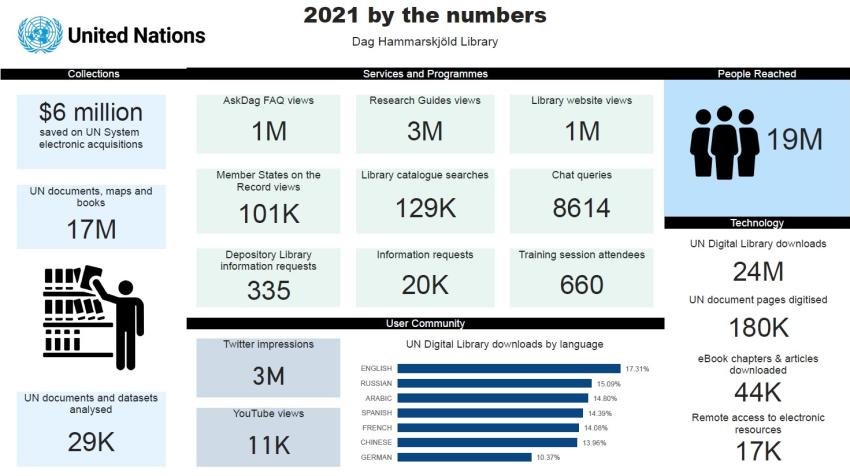In 2021, the Dag Hammarskjöld Library considerably increased its global reach and initiated new ways of collaborating with UN and research communities during the ongoing COVID-19 pandemic. The diversification of Library services and activities continued in these last two years, particularly since the UN Headquarters Library switched to mandated, full-telecommuting and then to hybrid working practices. This swift transition of operations to a remote working environment accelerated the implementation of the majority of the goals and objectives collaboratively identified in the DHL Strategic Outlook 2020-2025. Among the objectives met are the increased delivery of varied electronic services, the re-aligning of projects across the Library to focus almost exclusively on digital workflows, the establishment of the virtual research desk, the introduction of new, online trainings using multimedia, and the evolution of outreach activities to engage wider with scholarly communications communities in consonance with the Departmental Global Communications Strategic goals and the mission of the Organization.
11 شباط/فبراير 2022
The Dag Hammarskjöld Library celebrates the achievements of the United Nations System Electronic Information Acquisitions Consortium (UNSEIAC).
Open science upholds the fundamental human right to participate in and benefit from science, as recognized by Article 27 of the Universal Declaration of Human Rights.
The United Nations Dag Hammarskjöld Library puts forward a proposal for a UN Charter Libraries Network, a knowledge network that will collaboratively re-envision the work and nature of partnerships among affiliated libraries with the United Nations.




